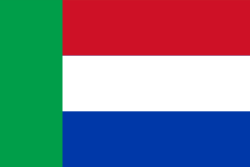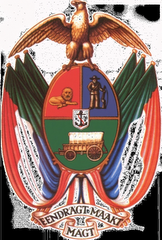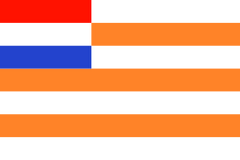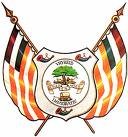Crime soars again in country where drivers dare not halt at a red light
Jonathan Clayton in Johannesburg
The glass shattered with an ear-splitting explosion. A hand, clutching a spark plug to break a reinforced car window, flashed and the bag was gone.
The driver had committed two mistakes. Running late, she had jumped into the car and thrown a handbag, containing a mobile phone, wallet and passport, on to the passenger seat. In South Africa, unwritten rules say you should hide such things under a seat or lock them securely in the boot.
With daylight fading, she then stopped at a red traffic light, rather than slowly inching her way forward if the way was clear. Once night falls in big cities, few dare to stop at junctions and crossroads.
The shadow in the dark used the momentary lapse to leap into action and within seconds the driver was another victim of the country’s soaring crime levels. Such is crime in South Africa where official statistics, published this week, showed another increase in murders, violent crimes, burglaries and carjackings. Over the past 12 months bank robberies have doubled.
The latest statistics have been met with fury across the nation. Radio phone-ins have focused on little else.
The front-page headline in a leading newspaper said: “You have never been in such danger in your home.”
Charles Nqakula, the Safety and Security Minister, admitted that the crime statistics were unacceptable, but dismissed calls to resign. For the second consecutive year the Government has failed to meet its target of reducing crime by between 7 and 10 per cent. “I am not going to resign,” he told business people in Johannesburg yesterday. “I am going to continue to find answers to the problems we have.”
Last February President Thabo Mbeki admitted that many South Africans lived in fear and promised an increase in police numbers and funding.
The crime statistics, which show that the country is one of the most dangerous in the world, are raising doubts over South Africa’s ability to host the football World Cup in 2010, and discouraging foreign investment.
The Government emphasised that crime overall had fallen by 20 per cent, and reported rape was also down. However, antirape activist groups say that with more than one rape estimated to occur every minute, many women never report such crimes. The police force is regarded increasingly as corrupt, incompetent and inefficient, and Jackie Selebi, the police chief, has been accused of dealings with underworld crime kings. He said his force would focus on the worst-hit areas.
The lengths to which people, particularly the white, and growing black, middle classes, go to avoid becoming yet another statistic often astonishes visitors from overseas. People driving home from shopping malls are warned to check frequently in the rearview mirror that they are not being followed. A strange car near a home may signal an attempt to raid their house.
Gangs, stalking shoppers in upmarket malls, stay in contact by mobile phone, and tip each other off when a likely victims is spotted. “A woman spending a lot of money in a jewellery shop, then getting into a car alone, could be signalled to the gang by a spotter. They will then follow her home and slip into the garage before the automatic door closes,” one policeman explained.
Fear of carjacking is even an acceptable excuse in court for failing to stop at a red light. In burglaries or carjackings, once the victim is alone with the perpetrators, murder or rape can easily follow.
comment:
This is an accurate report on life in Johannesburg; to survive you adapt and accept the new South Africa or leave. More than half of my friends and colleagues have been victims of violent crime in the past 5 years. The police force is lazy and inept and of little use in the Gauteng region that is truly scary. But remember as a tourist, you are still very unlikely to become a violent crime statistic or be eaten by a wild animal. Many more visitors are involved in road crashes that seldom get publicity.
Hic, Sandton, South Africa
She made a third mistake: she closed her window all the way. If you leave it open a centimetre or two, the spark plug will not shatter the window but bounce off.
Duncald, Melbourne, Australia
No one can live in fear all the time without great damage to themselves and the society as a whole. Apartheid may have discriminated against people who were not white, but savage crime that tears South Africa today is without bias. Everyone is prey. The crime of apartheid is not to be forgiven, but it is wrong to measure it against the depravity of criminals that infest the country today. To do so is to make excuses, and that is what the SA government of today does all the time. The South African government inherited everything that could have made the country the envy of Africa and the cynosure of the world, but, though incompetence, mendaciousness, greed and unfeeling arrogance they are now well set on the low road. They seem to be emulating the failed African states and the mendacious leaders of those counties north of them. It is too sad for words.
David, Atlanta, USA
http://www.timesonline.co.uk/tol/news/world/africa/article2028736.ece
Subscribe to:
Post Comments (Atom)







No comments:
Post a Comment